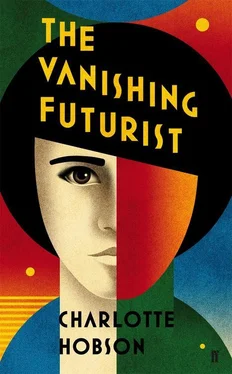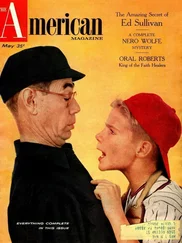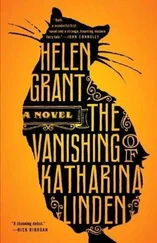I imagined instead Pasha’s likely response to this breakthrough and had to stare very hard at my lap not to laugh.
It was impossible to imagine how our minute increases in efficiency would ever make any difference in a world as utterly un-Taylorised as Moscow under War Communism. Most of my time cards reported two or three hours spent queuing for rations, reporting to empty classrooms on the off-chance of a bread delivery or walking to and fro across the city to give private English classes – a waste of time that would have been impossible to imagine before the Revolution.
This was the first problem with Fyodor’s system; the second was that our meetings, under his guidance, had all the excitement of a railway timetable. Ivan and Nina lasted one week and then excused themselves on theatrical business. Not long afterwards, they moved out, into a hostel belonging to the Kamerny Theatre. We were left to practise the Model T without Nina’s deep voice commanding us to ‘Release the pancreas. Release… the spleen. Release… the duodenum.’ Where were Pasha and Volodya? Without them, our evenings became almost funereal. We were all worried, and didn’t want to talk about them. Slavkin would sit a little off to one side, tense, red-eyed, with a nervous twitch of the head that I hadn’t noticed before. When it came to his turn, he said only, ‘I have no increases in efficiency to report.’
‘Come on, Nikita, stop sulking!’ Dr Marina snapped after a week or so of this. ‘Surely you’ve got some ideas. You’ve always been fascinated by time, in theory, at least?’
Slavkin glared at her. ‘Yes, in fact I do have a suggestion,’ he said at last. ‘If I could spend these evening hours in my workshop I believe I could bring forward the completion of my Socialisation Capsule by as much as six months. This is certainly the greatest service I can do for the Revolution.’
‘Fuck you!’ Fyodor suddenly bellowed.
‘Fyodor!’ said Dr Marina, shocked.
‘Yes, I mean it!’ he rushed over to Nikita and shouted in his face. ‘Fuck you! How dare you sabotage my attempts at progress, you bastard? How dare you treat me with this disrespect when we have gone through with all your half-baked idiotic whimsical “experiments”, your narcotic counter-revolutionary fancies! You’ll suffer for this, you cretin, I’ll make sure you do!’
A pause while we all stared aghast at Fyodor, scarlet in the face and shiny with sweat. ‘And fuck all of you too!’ he screamed, his voice breaking, as he stormed out of the room.
The Red Guards upstairs broke into applause. Fyodor stamped downstairs and out of the front door, slamming it behind him.
Sonya was the first to speak up. ‘I do understand what Fyodor means,’ she murmured.
Nikita looked at her, and we all waited.
‘I should probably apologise to him then, should I?’ he asked.
‘Yes, Nikita, well done,’ said Dr Marina bossily. ‘And by the way I think we can all agree that you’d be better off spending the time on the Capsule.’
‘Perhaps these evening meetings have run their course, just for the moment?’ I suggested. ‘Could we have a holiday, so to speak, until Pasha and Volodya return?’
I immediately regretted having mentioned their names. Vera burst into tears and Sonya jumped up to comfort her.
‘Oh, for goodness’ sake,’ Sonya rounded on me. ‘Gerty, you are as bad as Fyodor. There’s no need to say everything that pops into your head!’
* * *
As usual, Pelyagin had a few tasks to finish off when I arrived at his office. I sat down to wait for him and looked around. The room was warm and stuffy, and there was the usual faint smell of food from the canteen. His assistant was not there; I watched Pelyagin working methodically through his papers, scanning, signing, placing them on one pile or another. A delicious sensation of peace crept through me; I removed my coat and leant back in the chair, feeling the muscles in my back and legs relax, the tension in my forehead seep away. My eyes drifted shut…
‘My apologies, Comrade Freely.’ Pelyagin was standing over me and there was an expression on his face… I gazed at him, trying to read it. ‘I’ve kept you waiting,’ he said. ‘Why don’t I fetch some coffee from the canteen, and something to eat?’
He left the room. Flustered, I struggled upright and tried to make myself tidy. I took the Illustrated London News out of my bag and bent over it as he entered, carrying a cup and a bag of rusks.
‘Goodness, coffee!’ I exclaimed. ‘I haven’t tasted it for months.’
‘They call this coffee. I think it is made out of wood chippings.’
We both laughed, and for a moment I caught a glimpse of a younger Pelyagin, a boy with a loose, aimless grin.
‘I’m sorry,’ he said diffidently, sitting opposite me. ‘I couldn’t help with the housing compression. It is not my department, you know. I talked to my colleagues but they were not sympathetic. Are you managing to continue your communal work?’
‘Oh, yes, we are managing – although things are not easy at the moment, we have some personality clashes – it is inevitable, it may even be a necessary part of the evolution of the commune.’ Suddenly my loneliness came out in a wail. ‘But it is hard…’
‘I’m… I’m sure you will persevere.’
I leant forward and put my hand on his arm.
‘I really am so grateful to you for doing what you could.’
He almost snatched his arm away. ‘We must start work.’
‘Yes, you’re right. Please, read this passage for me.’ As he stumbled his way through an article on recent innovations in the Manchester textile industry, I drank the rest of my coffee and tried to calm down. I was becoming morbidly sensitive. It was poor nutrition and lack of sunshine, no doubt.
* * *
Summons to Nikolai Gavrilovich Slavkin to a Labour Tribunal at the Centre for Revolutionary Research, 29 November 1918.
…Comrade Slavkin takes as his starting point obscure and esoteric theories of ‘quantisation’ and develops these theories erratically and with little evidence of either mathematical or empirical backing for his work. We cannot allow the limited resources of the Centre to be wasted.
The tribunal will take place on 12 January 1918.
I don’t think Nikita ever apologised to Fyodor. While I was with Pelyagin – a strange little stage-lit excerpt from winter – this summons to justify his working methods arrived from the workers of the Centre.
According to Sonya, he fell into a panic on reading these words. ‘He was shaking and gasping for breath,’ she told me. ‘You know that funny little twitch he sometimes has? I think it’s from the narcotic, he’s been taking it quite often. He wouldn’t listen to anything I said – he didn’t seem to be able to hear me. He ran out into the night and the only thing I could do was to go after him. He ran all the way to Bryansk station and I thought I’d lost him among the crowds. Then I found him just standing at the bottom of the main steps – in everyone’s way – he didn’t recognise me, Gerty. I stood with him and we were being pushed here and there by the crowds, but he wouldn’t move a step, it was as though he was made of stone. At last a station guard shouted at him and dragged him out of the way, and that seemed to wake him up. He looked around as if he didn’t know where he was and then he saw me, and I could see him wondering who I was, and then it dawned on him and he smiled…’ She smiled too, at the memory.
‘Romance, for Revolutionaries, is as horrid a perversion as anything the French Marquis dreamt of.’ I said it aloud, without quite meaning to; Sonya frowned.
‘What?’
‘Oh, something Nikita once told me… I thought he meant it.’
Читать дальше





![Майкл Муркок - Спящая волшебница / The Sleeping Sorceress [= Участь Белого Волка, Рыцарь Хаоса, The Vanishing Tower]](/books/327544/majkl-murkok-spyachaya-volshebnica-the-sleeping-sorc-thumb.webp)






